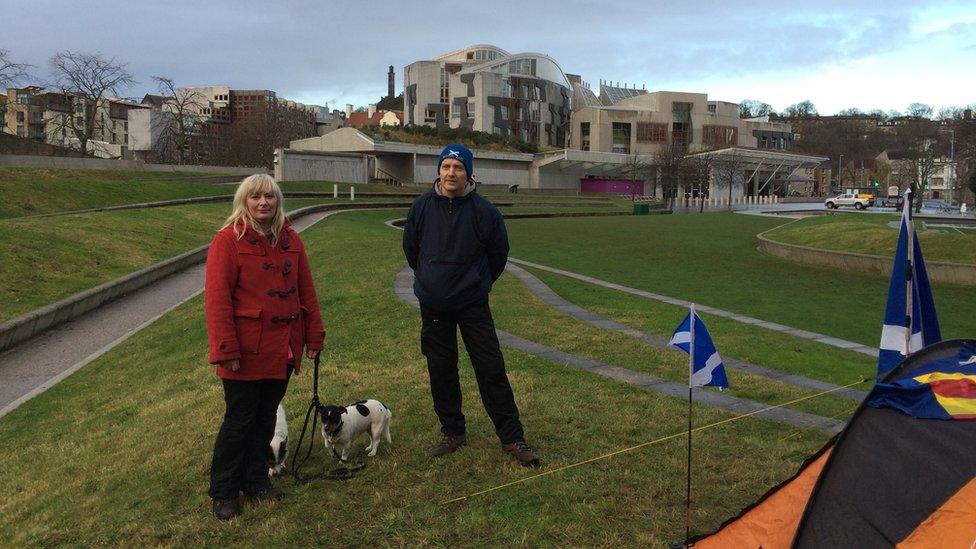IndyCamp group respond to court against legal action
- Published
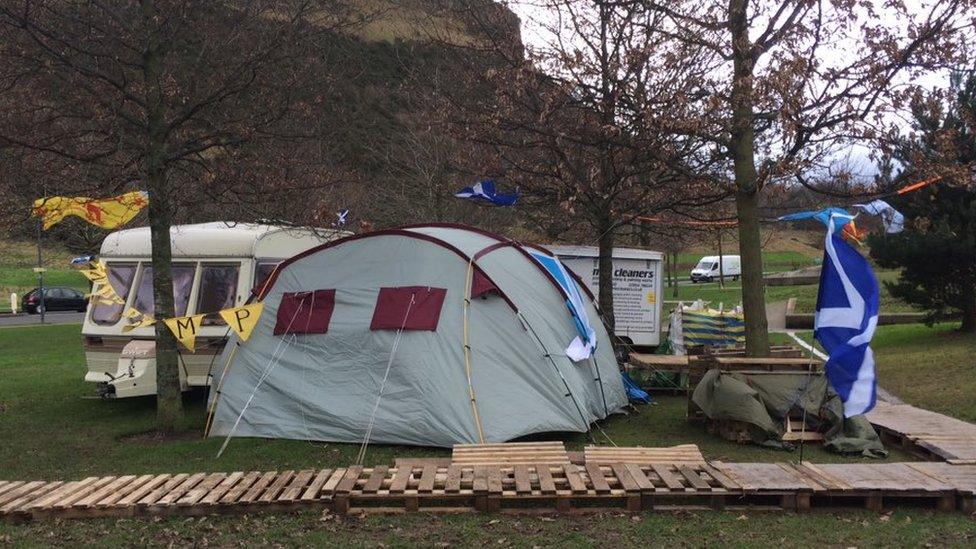
The campaigners aim to remain in place until Scotland is declared independent from the UK
Independence campaigners who have set up camp outside the Scottish parliament have submitted papers against the legal bid to oust them.
The IndyCamp Live group was served with a notice to quit Holyrood last month, and given 21 days to submit its case to the Court of Session.
In a video posted online, a camp representative said the group had delivered papers to the court.
The campers aim to stay in place until Scotland is independent.
The IndyCamp was set up in late November, with campaigners planning to keep the site occupied full-time until Scottish independence is declared.
Camp leaders said they were taking inspiration from the Democracy for Scotland vigil in the 1990s, which spent five years campaigning for devolution.
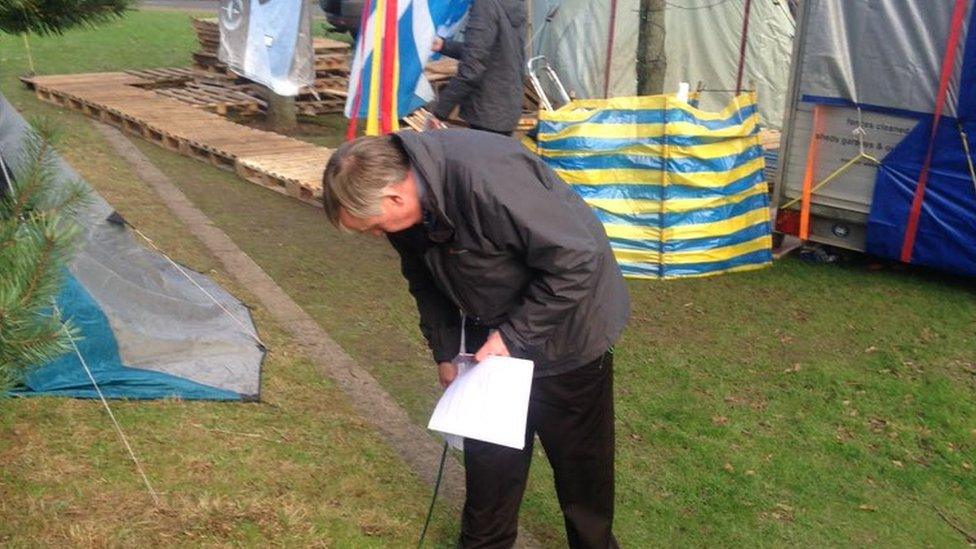
Notice was first served on the campers on 8 December
However, the Scottish Parliament launched legal action against the group, saying it did not have permission to camp on the site and was preventing other members of the public from using the public space.
A spokesman said the presence of the group was "at odds with the policy of maintaining the political neutrality of the parliamentary estate".
Notice was served on the campers on 8 December, giving them 48 hours to leave the site. After this time elapsed, the parliament petitioned the Court of Session to "recover possession" of the land occupied by the camp.
The court gave permission for parliament to serve action on the campers, but the group was given 21 days to respond to the petition, expiring on Thursday.
The group have declined to comment on the latest developments when approached by the media.
However, in a video posted online, a representative of the group said papers had been handed in at the Court of Session outlining the group's arguments for why they should be allowed to stay.
The Court of Session will now examine the arguments put forward, with potential for a court hearing between camp and parliament representatives.
- Published17 December 2015
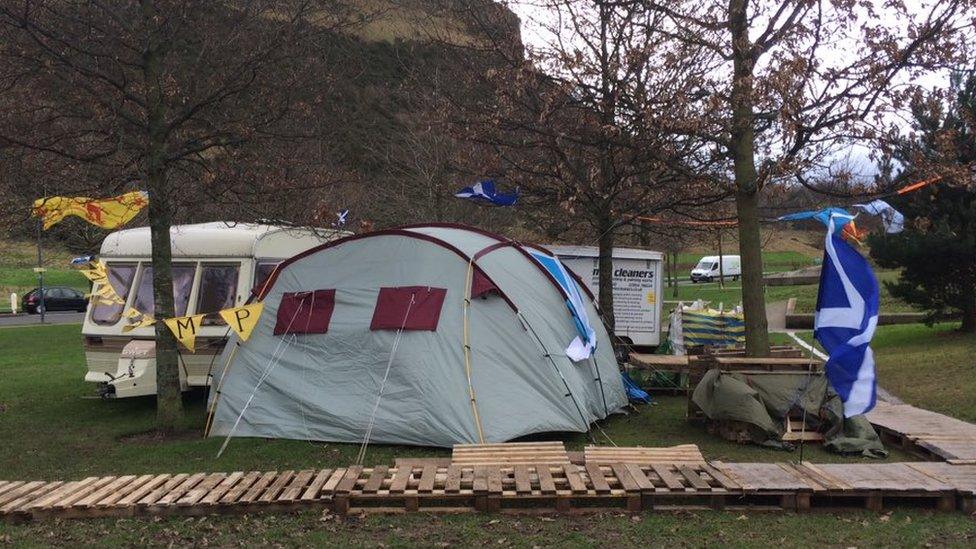
- Published10 December 2015
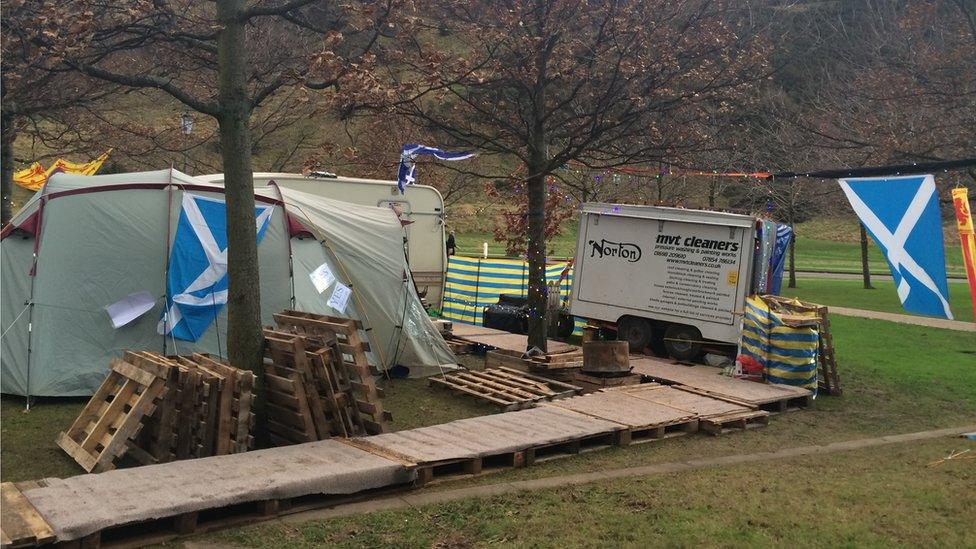
- Published8 December 2015
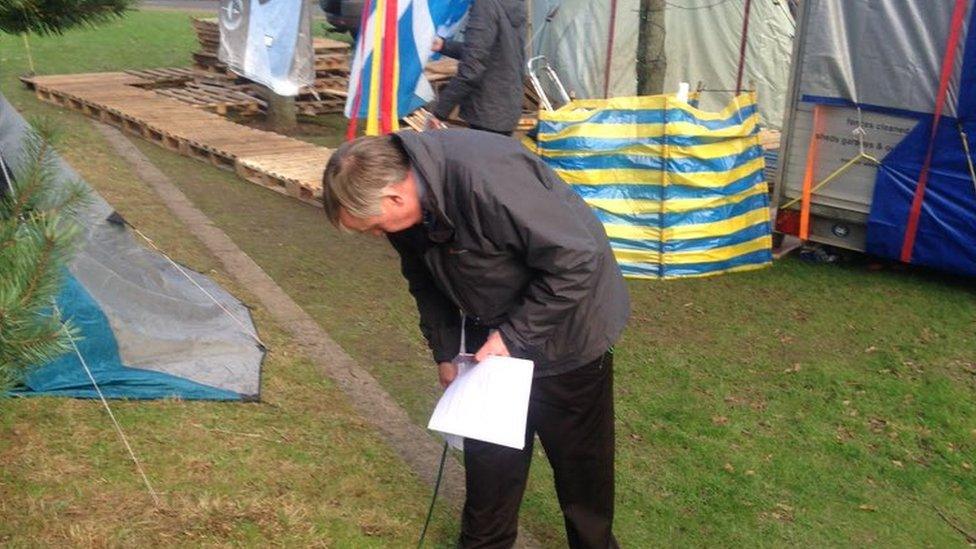
- Published2 December 2015
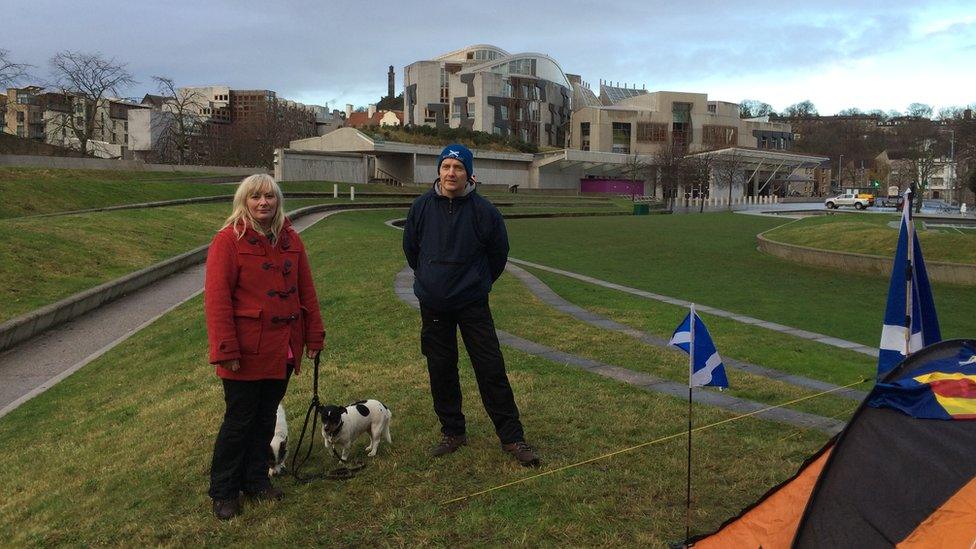
- Published30 November 2015
